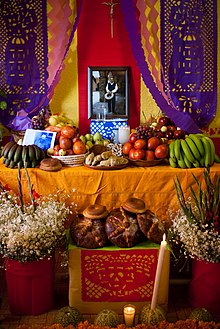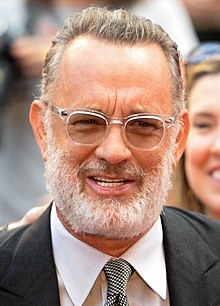Portal:Religion
The Religion Portal
Religion is a range of social-cultural systems, including designated behaviors and practices, morals, beliefs, worldviews, texts, sanctified places, prophecies, ethics, or organizations, that generally relate humanity to supernatural, transcendental, and spiritual elements—although there is no scholarly consensus over what precisely constitutes a religion. Different religions may or may not contain various elements ranging from the divine, sacredness, faith, and a supernatural being or beings. (Full article...)
 Vital article
Vital article
Secularism is the principle of seeking to conduct human affairs based on naturalistic considerations, uninvolved with religion. It is most commonly thought of as the separation of religion from civil affairs and the state and may be broadened to a similar position seeking to remove or to minimize the role of religion in any public sphere. Secularism may encapsulate anti-clericalism, atheism, naturalism, non-sectarianism, neutrality on topics of religion, or antireligion. As a philosophy, secularism seeks to interpret life based on principles derived solely from the material world, without recourse to religion. It shifts the focus from religion towards "temporal" and material concerns. (Full article...)
 Did you know (auto-generated)
Did you know (auto-generated)
- ... that Musa va 'Uj depicts figures from all three Abrahamic religions?
- ... that the nonconformist minister Ichabod Chauncey was banished from England under the Religion Act 1592 and spent two years in exile in Holland where he published a defence of his actions?
- ... that the capital of South Ossetia once had more Jews than Ossetians?
- ... that Gamaliel's principle has been used to support religious pluralism and reforms within religious groups?
- ... that Catherine de Parthenay, a 16th-century Huguenot leader, was a member of "a highly successful network of information" during the French Wars of Religion?
- ... that Gherardo Gambelli, the incoming archbishop of Florence, served as a prison chaplain in Chad for over a decade?
Gaius Julius Caesar Augustus (born Gaius Octavius; 23 September 63 BC – 19 August AD 14), also known as Octavian (Latin: Octavianus), was the founder of the Roman Empire. He reigned as the first Roman emperor from 27 BC until his death in AD 14. The reign of Augustus initiated an imperial cult, as well as an era of imperial peace (the Pax Romana or Pax Augusta) in which the Roman world was largely free of armed conflict. The Principate system of government was established during his reign and lasted until the Crisis of the Third Century. (Full article...)



































































